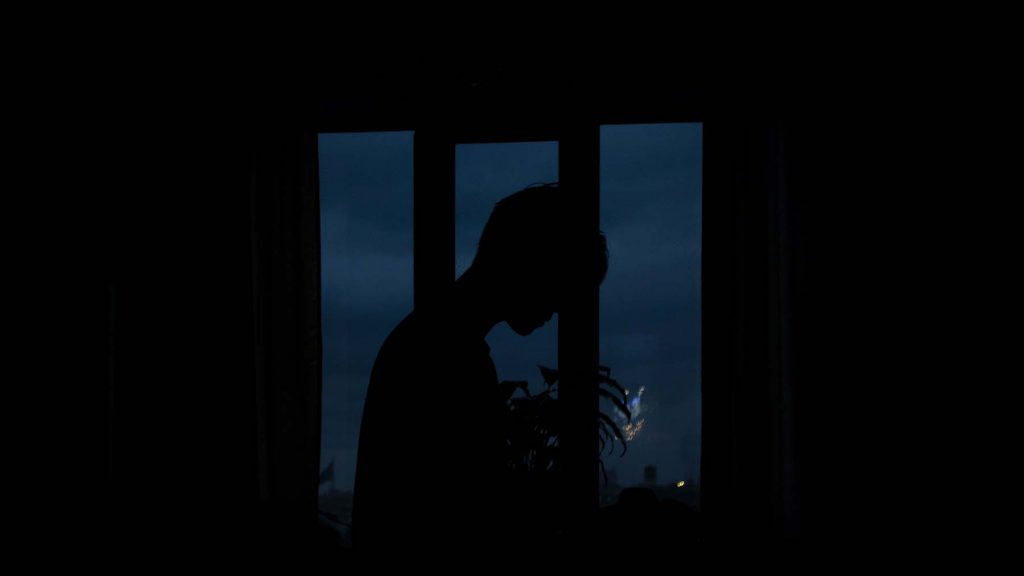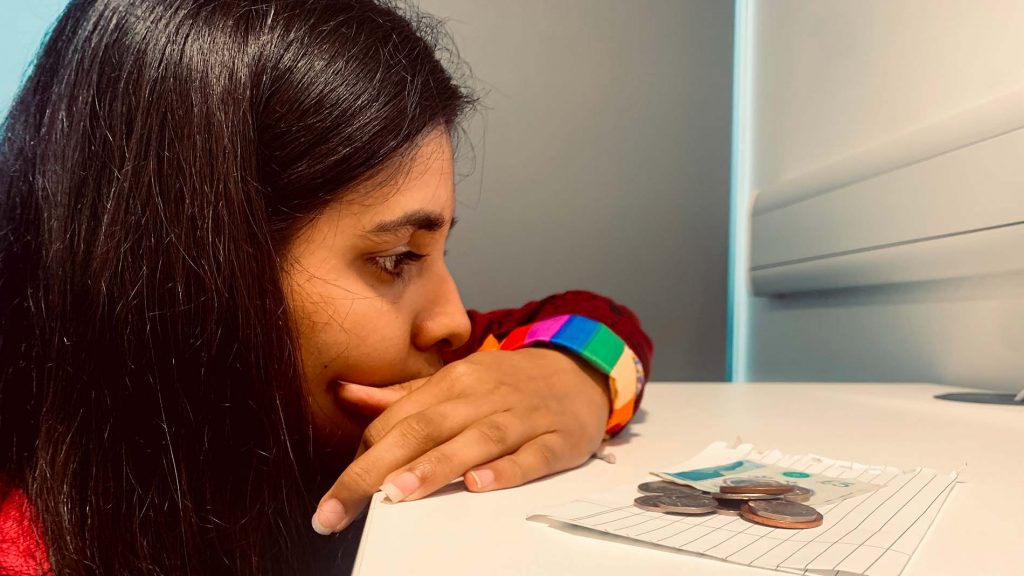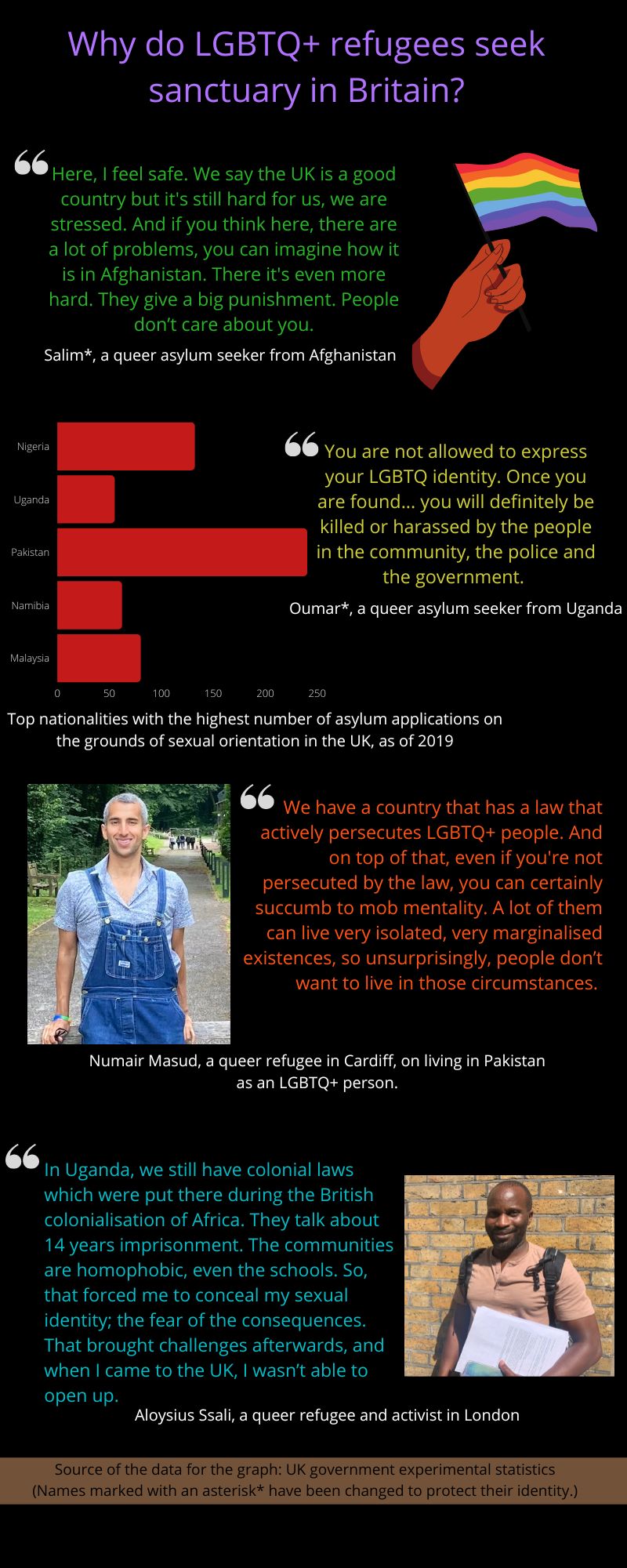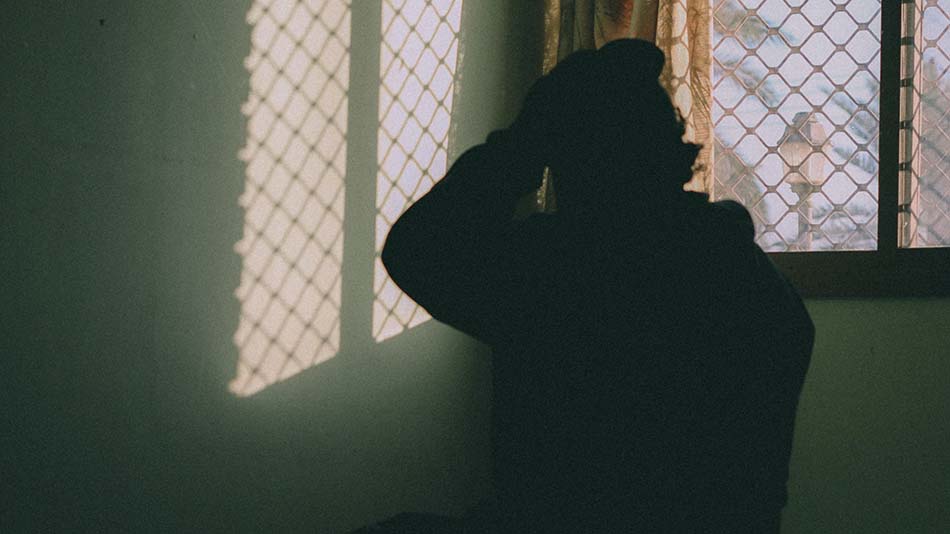With Britain’s hostile immigration policy, asylum seekers find it difficult to cope with the challenges that they face, particularly in detention. How much harder is it when you are part of the LGBTQ+ community?
When Azi* fled Nigeria, he didn’t anticipate living in a detention centre in Britain. Cooped up in a room with a bed that was infested with bugs, no windows for ventilation, and fearing that other detainees would find out he was gay, it reminded him of his childhood.
The dread of being outed as gay forced Azi to leave Nigeria. “If your family gets to know you’re ‘homosexual’, you’ll be penalised. And there won’t be any family that would support you. You’ll be cast out. You can even end up losing your life,” says Azi.
When Azi came to the UK on a visitor’s visa in 2012, he didn’t know that he could claim asylum on the grounds of his sexual identity. All he knew was that he couldn’t go back to Nigeria.
Having been through abuse in foster care since he was eleven, Azi lived in a shed during his teens while grappling with his sexual identity and the repercussions of living in Nigeria as a queer adolescent. “Life in a way is going to be unbearable. It’s either you leave, or you hide it.”
And when he did leave, he was sent to a detention centre in Oxford, which he describes was unsanitary and depressing. “There are so many diseases in there. They have bed bugs. I’m still going through a five-year rash that I got in detention; I never had any rash before I came to this country. But up till date, I’m still medicating the rash,” says Azi.
Besides the squalid conditions, Azi had to face officers who were cold and harsh to asylum seekers. “It’s horrible in detention… They search you like you’re going to prison. They strip you naked. They check everything. These are the things you are going to face there,” says Azi who recounts that the officers at the detention centre lacked empathy.
However, as an LGBTQ+ asylum seeker, it was worse for Azi. He did not feel comfortable about coming out to other asylum seekers at the centre because he was worried that it would be met with homophobia; which is what he was running away from. “You never know what they’d do to you. There are people who don’t like people like me. There are no cameras in the showers, so your life is definitely in danger,” says Azi.
Although Azi did make a few friends in detention, he believed that if they found out that he was gay, he would be alienated. He also felt that he would miss out on opportunities that you could get through making connections with asylum seekers at detention centres, particularly people from your home country because of the cultural bond that they might share. “They would definitely tell you where the better stuff is but because you’re gay they might have a prejudice. So, I thought I won’t be one to tell them,” says Azi.
According to Moira Dustin, researcher of the Sexual Orientation and Gender Identity Claims of Asylum Project, LGBTQ+ people seeking asylum may find it harder to get support from the diaspora community because of the fear of being subjected to homophobia, as they are fleeing from people in their home country in the first place.

During the six months that he was in detention, Azi’s mental health worsened. Struggling to provide proof to back his asylum claim while battling isolation, he felt like he couldn’t cope in the detention centre. He despised staying indoors because it reminded him of his youth, which is why he would go out frequently, so as to not relive the trauma of his past, until he was apprehended by immigration. “My mental health deteriorated when I was in detention massively, says Azi. “I was suppressing my emotions by going out before. But when I was there, it really affected me.”
Azi’s experience isn’t unique. A report by Stonewall revealed that the circumstances at the detention centres put LGBTQ+ asylum seekers who are considered to be vulnerable individuals, at risk of being victimised and having to cope with trauma alone. Ife, a Nigerian asylum seeker told Stonewall that she tried to take her own life during her time at a detention centre as she was struggling with depression and PTSD.
Many queer asylum seekers find it difficult to cope with their mental health during the asylum-seeking process and the lack of resources at detention centres as well as the absence of signposting of mental health services by the government have made it difficult for LGBTQ+ migrants to seek help.
In terms of potentially stigmatising people as being vulnerable, that actually if you’re not labelled vulnerable, then it means that you’re more likely to be detained.
Moira Dustin, researcher of the SOGICA project
Ahmed*, a gay asylum seeker from Guinea, says that the only person he could confide in during the initial stages of his asylum-seeking process was his lawyer. He says, “She told me to tell her everything. It was very very difficult. Whenever I talked to her about it, I used to get flashbacks.” For him, it was challenging to open up about his sexual identity that he had spent a lifetime repressing, which led to him feeling isolated. “The more I sit alone, the more I get depressed,” says Ahmed, who now attends support group meetings to cope with his mental health.
While trans and intersex people are considered to be vulnerable to be sent to detention centres, LGB people are not regarded as ‘Adults at Risk’, according to a report by Rainbow Migration. Moira Dustin believes that sending LGB people to detention centres will not only prohibit them from gathering evidence that the Home Office demands to support their claims but will also affect their mental wellbeing.
“I think that’s a very interesting situation in terms of potentially stigmatising people as being vulnerable, that actually if you’re not labelled vulnerable, then it means that you’re more likely to be detained,” says Moira.
According to Moira’s research, there is an elevated obstacle for queer women and trans people seeking asylum in the UK.
“There is discrimination in healthcare,” she says. “I imagine there are parts of the country where it’s harder to find the kind of therapeutic or medical support that you need if you’re transgender, and asylum seekers don’t have any choice about where they’d go because they have this system of dispersal as the government doesn’t want people to settle in the expensive rich southeast of the country.”
Vani was one among many trans asylum seekers who experienced injustice in medical care. “In detention, they told me I can’t have any kind of hormones. If I don’t have the hormones, I get hot flushes and all those hormonal imbalance things. I get blisters, get depressed, get anxiety and all sorts of stuff,” she told Stonewall.
As challenges accessing healthcare exists, LGBTQ+ women have also reported that they don’t feel safe in detention centres.
Many LGBTQ+ women seeking asylum who are sent to detention centres, find it intimidating to be around predominantly male officers, who they say lack a sense of privacy. Brianna, a Jamaican asylum seeker told Stonewall that she felt uncomfortable when the officers used to barge into her room unannounced.
Many women also experience trauma as they were subjected to sexual violence in their home country for expressing their sexual and gender identity. Owing to poor signposting towards support groups from the Home Office, they battle PTSD. According to Mark Lewis who runs a support group for LGBTQ+ asylum seekers in Cardiff, most asylum seekers who go to him, are not aware that they have PTSD, as in their home countries, mental health is still a taboo subject.
For a lesbian woman like Katrin*, who is seeking sanctuary in the UK upon leaving Zambia, she says that although she isn’t forced to hide her sexual identity, there is a certain stigma associated with the black ethnic minority in the UK being part of the LGBTQ+ community. As a result, it took her a while until she gained the confidence to be able to express her sexual identity freely.
Katrin also says that she is burdened financially as the £40 that she receives from the government is not enough to survive. She says, “If you are not allowed to work; you can’t buy things that you need, can’t travel, can’t meet friends. You are limited to what you can do.”
One of the greatest difficulties that asylum seekers face is that they cannot seek employment. For LGBTQ+ asylum seekers, there is an added challenge as they may find it hard to approach community asylum seekers’ organisations for financial aid, because they fear that they would be discriminated against, according to Moira Dustin.

For Oumar*, a queer refugee in Cardiff, although he was not detained, the asylum-seeking process has been difficult for him. Having been a school teacher back in Uganda, being unemployed while waiting on his asylum application, has impacted his mental health. “Right now, my mental health is not okay. I’m not okay. I just want to stay alone,” says Oumar, whose asylum claim has been going on for three years now.
Campaigners like Numair Masud advocate for more bespoke training opportunities to be offered by the government to asylum seekers. “Being able to encourage the Home Office to allow asylum seekers to work is going to be incredibly useful,” he says.
While there exists a hostile environment for asylum seekers, the Rwanda policy, can be particularly distressing to LGBTQ+ migrants. “Queer asylum seekers will find it particularly difficult to move to Rwanda, where the LGBTQ+ community is unjustly treated. We know that Rwanda is not supportive of the LGBTQ+ community and there are no legislations over there that do protect the LGBTQ+ community,” says Numair, a queer refugee himself. “Many of them are very vulnerable and they’re going to have to hide their sexuality or their identity, and that is going to take a toll on their mental health.”
Azi condemns the Rwanda policy as he too believes that it is dangerous to send LGBTQ+ asylum seekers there. “For LGBTQ+ people there, there won’t be any support. It’s a danger zone. Even as a refugee going there, it’s going to be violent.”
Having been granted asylum after leaving detention, Azi thinks that the government should allow asylum seekers to work in the UK.
Although he had a brief stint as a security guard in Cardiff, he was compelled to quit when he experienced racism. Currently on benefits as he doesn’t have suitable training, he struggles to make ends meet.
“I’m not really asking for much. I just want to be happy and financially stable,” he says, holding on to the hope that he’ll have a steady income soon.
(Names of the people marked with an asterisk* have been changed to protect their identity.)

